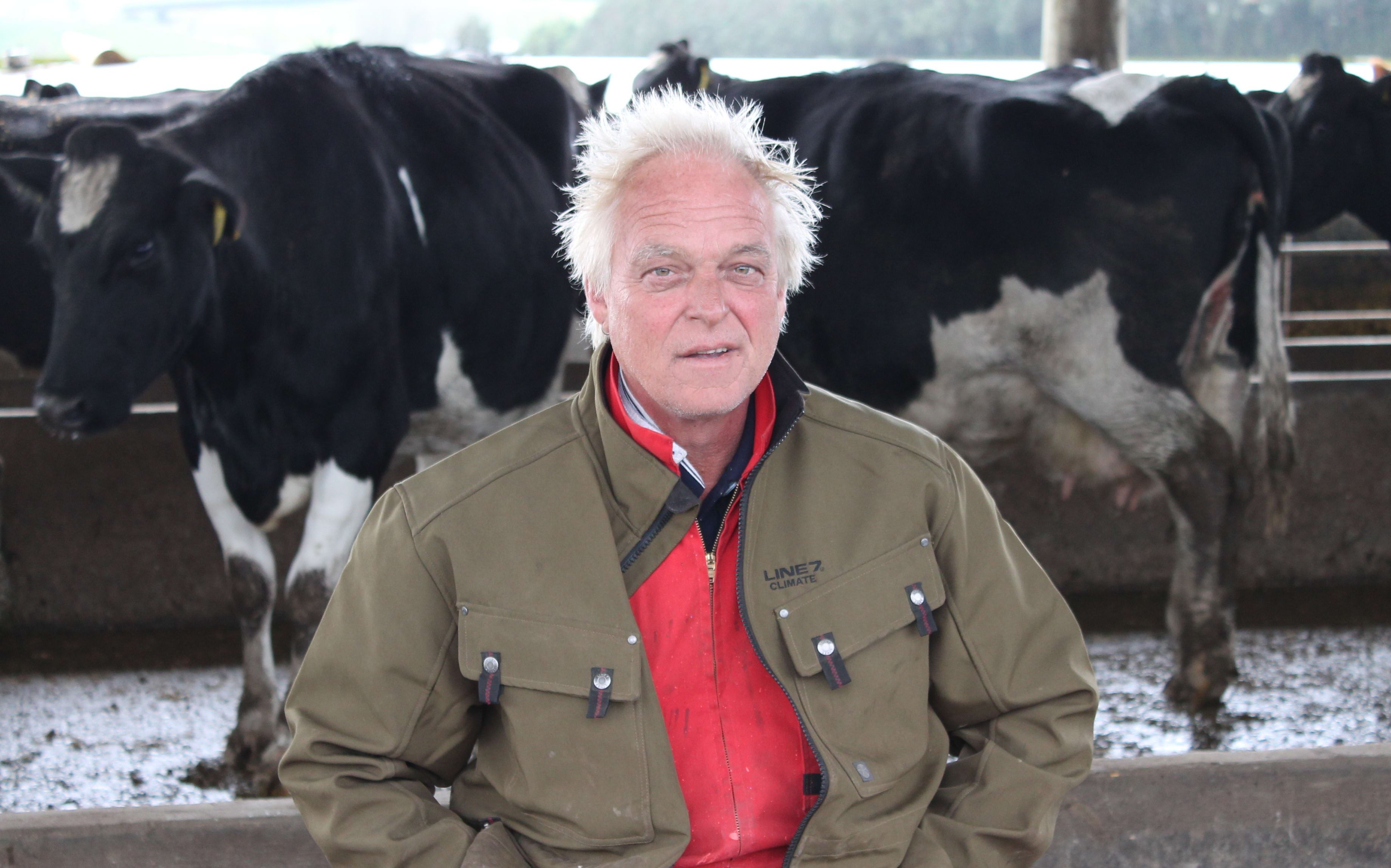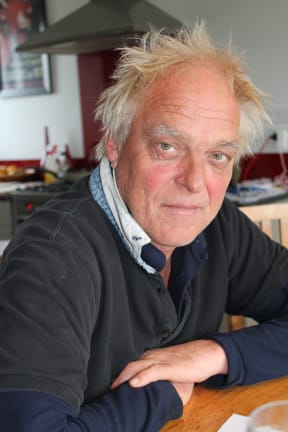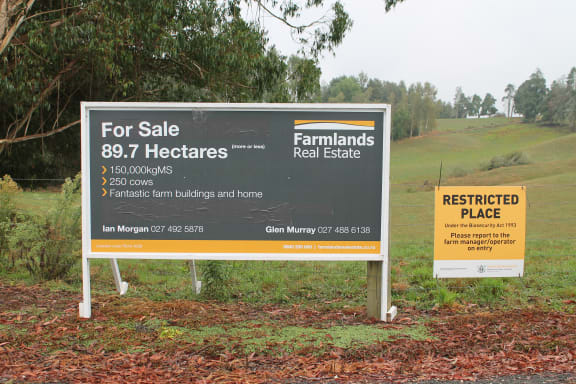
Photo: RNZ/Carol Stiles
A Waikato farmer who had to kill 800 cows and calves after mycoplasma bovis was detected in his herd, has had death threats, has put his farm on the market and wants to leave the country.
Henk Smit says he has had a 'guts-full' of farming in New Zealand and wants to leave the country.
His Karapiro property is now silent and empty after the last of his cows were taken to slaughter earlier this week.
"In a way, I'm pleased to see it happening now, just (to) get it out of my hair," he says, over the rumble of arriving stock trucks.
Henk has spent 30 years breeding what had become a top performing herd.
Then last July he found out all of his cows and their unborn calves would have to be killed.
Until now he has been allowed to milk on.
Smit points out his best cow, waiting to be loaded onto a truck.
And then another: "That one there, the white one. I could take her to the show and win. She's a beautiful heifer that one. If I wash her and clip her I think I (would) win the show with her."
For 60 days straight during calving time, Henk picked up healthy newborn calves, took them to the back of the farm and shot them.

Photo: RNZ/Carol Stiles
"I think that's one thing MPI (NZ's Ministry for Primary Industries) has done wrong. You know it's been a drama in a lot of places, particularly in situations where staff had to do it. They should have had someone here every day to do it or (should have) taken the calves away somewhere else."
Smit says that while some people have been sympathetic to his plight, others have not.
He's received abuse online, a death threat in the mail and a bullet in his letterbox.
He says he didn't bother going to the police.
"What's the point? I mean, there was nothing on the envelope. There was no address."
The threats came after Henk stood up at a farmers' meeting last year and told the crowd mycoplasma bovis had been detected in his herd.
He had bought the cows from an infected herd in the South Island.
"I think it was really really blown out of proportion in the beginning ... Mycoplasma bovis is nothing but the whole industry were making (it out that) this was so bad for New Zealand ... and then I was deemed to be the first person that brought mycoplasma bovis into the North Island. I don't even know whether I was the first one."

Photo: RNZ/Carol Stiles
Henk is trying to sell his farm but there's not been much interest. Now the last cow has gone, the farm will be disinfected and ready for a new herd in 60 days' time.
He plans to head to Tanzania where he has invested in an artificial insemination company.
There's a movement to increase food production in Africa, he says, "so there's quite a push for genetic improvement and better crops."
However, first Henk will re-grass the maize paddocks and head to the South Island to buy more cows.
"If I'm not selling the farm I have to put cows back on."

